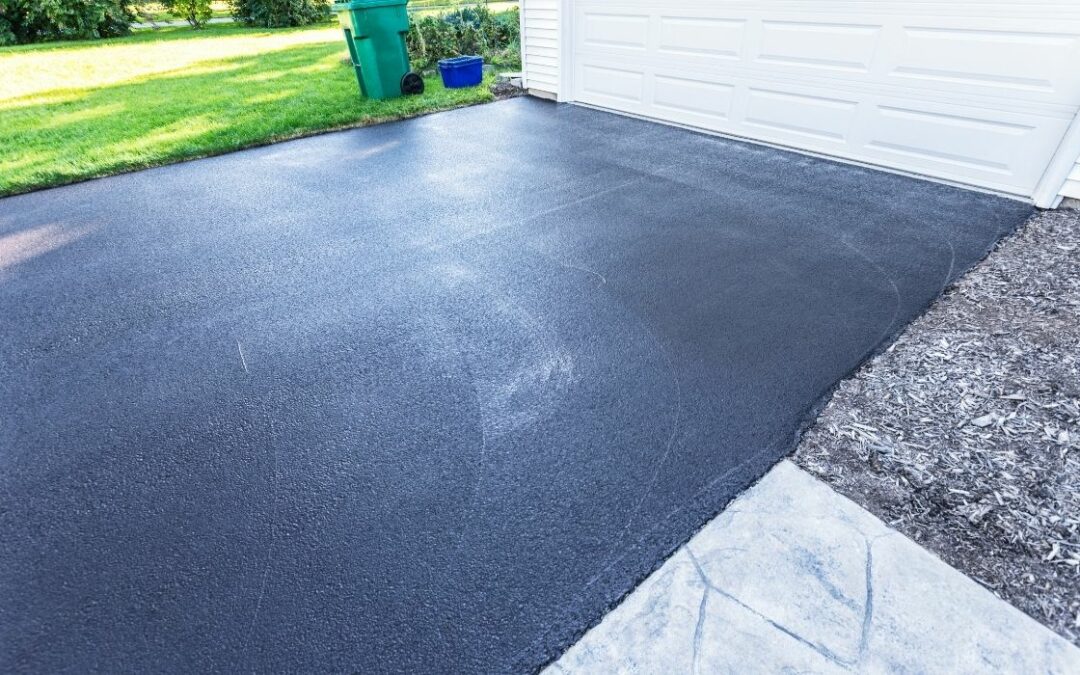Cold Mix Asphalt Vs. Hot Mix Asphalt: Which Is Right for You?

Make-up Distinctions
Cold mix asphalt is created by emulsifying the asphalt binder with water and an emulsifying representative prior to blending it with accumulation. The warm mix asphalt manufacturing procedure involves heating the aggregate and asphalt binder separately before integrating them at the asphalt plant.
In addition, cool mix asphalt often tends to be much less thick and extra flexible than warm mix asphalt. This adaptability makes it better matched for locations with greater degrees of activity, such as driveways or roadways with rush hour. In comparison, hot mix asphalt is understood for its high durability and resistance to rutting and splitting, making it a preferred choice for highways and high-traffic roadways where long life is critical.
Installment Process Variations
The process of installing cool mix and warm mix asphalt displays noteworthy variances in their demands and procedures. Cold mix asphalt, being a more adaptable product, can be applied directly from the bag or container onto the split or damaged location. It needs minimal preparation job, such as cleansing the area and condensing the chilly combine with hand tools. This makes it a hassle-free choice for momentary and quick solutions. In comparison, hot mix asphalt demands a much more fancy installment process. It involves heating up the mix to high temperature levels before laying it down on a properly ready base. The preparation consists of compacting the base, using a tack coat, and making use of heavy equipment like pavers and compactors for a smooth and resilient surface. Due to the home heating requirements, warm mix asphalt setups are usually performed by experts with specialized devices, ensuring a much more structurally audio and permanent result.
Resilience and Durability Aspects
When considering asphalt alternatives, longevity and long life are vital aspects to assess for lasting that site sidewalk performance. my response Hot mix asphalt (HMA) is known for its exceptional longevity and long life.
In terms of long life, HMA commonly outshines CMA because of its superior toughness and resistance properties. HMA sidewalks have a longer life span, calling for less constant repair services and maintenance, which can convert to cost financial savings in the future. In addition, HMA pavements are extra quickly customizable to satisfy specific job requirements, additionally enhancing their toughness.
Cost Considerations
Considering the financial implications is an essential element when assessing the option between hot mix asphalt (HMA) and cold mix asphalt (CMA) for pavement projects. While the initial cost of warm mix asphalt is typically greater than that of cool mix asphalt, HMA usually gives an extra cost-effective solution in the lengthy run due to its premium longevity and long life.
In addition to material prices, it's necessary to consider the costs associated with setup and upkeep when comparing HMA and CMA. Inevitably, the decision between HMA and CMA need to take into account not simply the initial expense yet likewise the lasting financial ramifications to establish the most affordable alternative for the specific pavement task.
Environmental Impact Comparison
Contrast of the ecological effects between warm mix asphalt (HMA) and cold mix asphalt (CMA) reveals distinct differences in sustainability methods. HMA manufacturing calls for high temperature levels, leading to increased energy usage and greenhouse gas have a peek at this website exhausts.
Moreover, the use of CMA typically includes recycling existing asphalt sidewalk, advertising resource conservation and decreasing the quantity of waste sent out to garbage dumps. This recycling aspect further improves the sustainability of CMA contrasted to HMA. Generally, when thinking about the environmental impact, CMA becomes an extra ecologically sustainable choice as a result of its lower power needs, reduced emissions, and the possibility for reusing existing products. By choosing for CMA over HMA, road construction tasks can contribute favorably to ecological conservation initiatives.
Verdict
Finally, the choice in between cool mix asphalt (CMA) and hot mix asphalt (HMA) relies on various variables such as composition, setup procedure, toughness, longevity, expense, and ecological influence. angle parking. While CMA supplies a quick and economical option for small repairs, HMA guarantees premium resilience and durability for rush hour areas. Consider these aspects meticulously to determine which kind of asphalt is the best option for your paving requires

Considering the monetary effects is an important facet when assessing the selection between warm mix asphalt (HMA) and cold mix asphalt (CMA) for pavement jobs. While the initial expense of warm mix asphalt is typically higher than that of cool mix asphalt, HMA frequently supplies an extra affordable option in the lengthy run due to its superior sturdiness and long life. cold mix asphalt.Comparison of the environmental influences in between warm mix asphalt (HMA) and cold mix asphalt (CMA) exposes unique distinctions in sustainability techniques.In conclusion, the choice between chilly mix asphalt (CMA) and warm mix asphalt (HMA) depends on numerous aspects such as composition, installation process, sturdiness, longevity, cost, and environmental influence